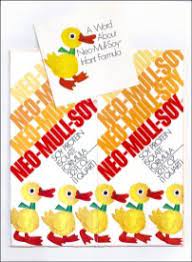As of January 1, 2023, U.S. copyright will expire for works published in 1927, including the following songs:
Ain't She Sweet (Yellen, Ager)
Back in Your Own Backyard (Jolson, Rose, Dreyer)
The Best Things in Life are Free (De Sylva, Brown, Henderson)
Black and Tan Fantasy (Ellington)
Blue Skies (Berlin)
Can't Help Lovin' Dat Man (Hammerstein, Kern)
Creole Love Call (Ellington)
Funny Face (Gershwin, Gershwin)
Hallelujah (Robin, Gray, Youmans)
He Loves and She Loves (Gershwin, Gershwin)
High Hat (Gershwin, Gershwin)
How Long Has This Been Going On? (Gershwin, Gershwin)
I'm Looking Over a Four Leaf Clover (Mort Dixon, Harry Woods)
In a Mist (Beiderbecke)
Me and My Shadow (Dreyer, Rose, Jolson)
Mississippi Mud (Cavanaugh, Barris)
My Blue Heaven (Whiting, Donaldson)
My Heart Stood Still (Rodgers, Hart)
Ol' Man River (Hammerstein, Kern)
Russian Lullaby (Berlin)
'S Wonderful (Gershwin, Gershwin)
Strike Up the Band (Gershwin, Gershwin)
Struttin' With some Barbecue (Armstrong, Armstrong)
Thou Swell (Gershwin, Gershwin)
Why Do I Love You? (Hammerstein, Kern)
The next few years will be bringing increasing numbers of standards by Gershwin, Rodgers, and others into the public domain.
In classical music, notable pieces entering public domain are the Gershwin Preludes, Bartok's String Quartet #3, Copland's Piano Concerto, and Shostakovitch's Symphony #2.
For more popular, jazz, and classical pieces entering the public domain, see the Wikipedia page 1927 in Music.
United States copyright law is quite restrictive as compared to many other countries. According to the provisions of the Copyright Act of 1976 and the Copyright Term Extension Act of 1998 (aka "Mickey Mouse Protection Act"), works published or registered before 1978 remain under copyright for 95 years.
With the passage of the 1998 law, the cutoff date for works entering the public domain became 1922, with any works published in 1923 or later remaining under copyright. Beginning in 2019, however, the clock began running again, with each new year bringing one more year of songs and other works into the public domain. Over the next 20 years or so, most "Golden Age" jazz standards will lose copyright protection.
Many other countries have shorter terms of copyright; one common formula is the life of the author plus fifty years (see this table). For example, in Canada you can record pieces written by Wes Montgomery (d. 1968) John Coltrane (d. 1967), Igor Stravinsky (d. 1971), Louis Armstrong (d. 1971). Lee Morgan (d. 1972), or Kenny Dorham (d. 1972).
Many other countries have shorter terms of copyright; one common formula is the life of the author plus fifty years (see this table). For example, in Canada you can record pieces written by Wes Montgomery (d. 1968) John Coltrane (d. 1967), Igor Stravinsky (d. 1971), Louis Armstrong (d. 1971). Lee Morgan (d. 1972), or Kenny Dorham (d. 1972).
Looking ahead, Mickey Mouse will become fair game in the US in 2024, unless Congress is somehow persuaded to change the present copyright law (again).
However, if you are thinking of utilizing Mickey's image in 2024, you should consider that copyright will only expire on images from cartoons released in 1928, such as Steamboat Willie. In those early images, Micky had a somewhat different visage, with a longer, rat-like nose. He did not not yet have his white gloves or red shorts; they came later. If you want to use the white gloves or red shorts, you will have to wait a few more years.
Here's an interesting article on the subject, with an image of Mickey as submitted for copyright in 1929. It looks to me as though Mickey's nose had been altered a little by then, closer to its current look. He has his white gloves, too. The image is in black and white, so I don’t know about the red shorts.
By the way, Minnie Mouse also appears in the 1928 cartoons, though I don't think she is credited by name.
In addition to copyrighting Mickey, The Walt Disney Company has also registered him as a trademark. US trademarks can be renewed every 10 years, potentially going on forever. Disney has a strong case for Mickey as a trademark, but less so for many of their other characters, who will be falling out of copyright in the next few years. Here is an article from the Western New England Law Review that covers in depth the legal standing of Mickey and other Disney characters.
More links:
Copyright Law of the United States (Wikipedia)
